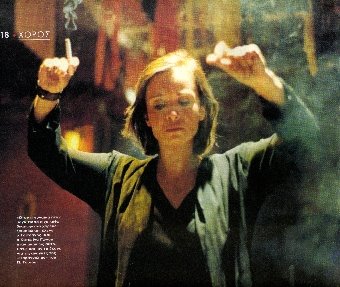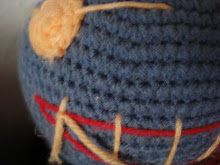
Fnord?
Fnord is evaporated herbal tea without the herbs.
Fnord is that funny feeling you get when you reach for the
Snickers bar and come back holding a slurpee.
Fnord is the 43 1/3rd state, next to Wyoming.
Fnord is this really, really tall mountain.
Fnord is the reason boxes of condoms carry twelve instead of ten.
Fnord is the blue stripes in the road that never get painted.
Fnord is place where those socks vanish off to in the laundry.
Fnord is an arcade game like Pacman without the little dots.
Fnord is a little pufflike cloud you see at 5pm.
Fnord is the tool the dentist uses on unruly patients.
Fnord is the blank paper that cassette labels are printed on.
Fnord is where the buses hide at night.
Fnord is the empty pages at the end of the book.
Fnord is the screw that falls from the car for no reason.
Fnord is why Burger King uses paper instead of foam.
Fnord is the little green pebble in your shoe.
Fnord is the orange print in the yellow pages.
Fnord is a pickle without the bumps. Fnord is why ducks eat trees.
Fnord is toast without bread. Fnord is a venetian blind without the slats.
Fnord is the lint in the navel of the mites that eat
the lint in the navel of the mites that eat
the lint in Fnord's navel.
Fnord is an apostrophe on drugs.
Fnord is the bucket where they keep the unused serifs for H*lvetica.
Fnord is the gunk that sticks to the inside of your car's fenders.
Fnord is the source of all the zero bits in your computer.
Fnord is the echo of silence.
Fnord is the parsley on the plate of life.
Fnord is the sales tax on happiness.
Fnord is the preposition at the end of sixpence.
Fnord is the feeling in your brain when you hold your breath too long.
Fnord is the reason latent homosexuals stay latent.
Fnord is the donut hole.
Fnord is the whole donut.
Fnord is an annoying series of email messages.
Fnord is the color only blind people can see.
Fnord is the serial number on a box of
cereal.
Fnord is the Universe with decreasing entropy.
Fnord is a naked woman with herpes simplex 428.
Fnord is the yin without yang.
Fnord is a pyrotumescent retrograde onyx obelisk.
Fnord is why lisp has so many parentheses.
Fnord is the the four-leaf clover with a missing leaf.
Fnord is double-jointed and has a cubic spline.
Fnord never sleeps.
Fnord is the "een" in baleen whale.
Fnord is neither a particle nor a wave.
Fnord is the space in between the pixels on your screen.
Fnord is the guy that writes the Infiniti ads.
Fnord is the nut in peanut butter and jelly.
Fnord is an antebellum flagellum fella.
Fnord is a sentient vacuum cleaner.
Fnord is the smallest number greater than zero.
Fnord lives in the empty space above a decimal point.
Fnord is the odd-colored scale on a dragon's back.
Fnord is the redundant coin slot on arcade games.
Fnord was last seen in Omaha, Nebraska.
Fnord is the founding father of the phrase "founding father".
Fnord is the last bit of sand you can't get out of your shoe.
Fnord is Jesus's speech advisor.
Fnord keeps a spare eyebrow in his pocket.
Fnord invented the green hubcap.
Fnord is why doctors ask you to cough.
Fnord is the "ooo" in varooom of race cars.
Fnord uses two bathtubs at once.
I cannot escape them
No matter how I try
They wait for me everywhere
I cannot pass them by.
Driving down the street
I see "Jesus Is Lord"
And then immediately after
I hear the word "FNORD!"
Innocuous sayings and parables
And on the evening news
I hear the word "FNORD!"
And suddenly I'm confused
I sit alone in my room
And I'm feeling rather bored
I turn on the tube and guess what
I hear the word "FNORD!"
"Don't see the fnords and they won't eat you"
That's what I've heard the wisemen say
But I can't get away from those beasties
There's just no fucking way.
I believe I found these on alt.discordia
buxton@uiuc.edu









